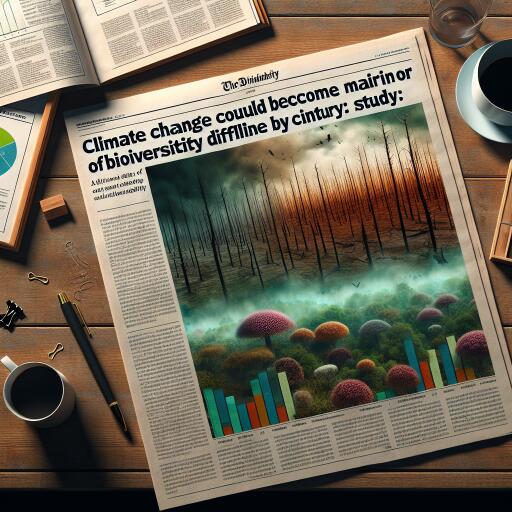
Climate Change Set to Spearhead Biodiversity Decline by 2050, Reveals New Study
In groundbreaking research, scientists have unveiled a grim projection for the world’s biodiversity, forecasting that climate change is on track to become the leading cause of biodiversity decline by the midpoint of the 21st century. This comprehensive study sheds light on the potential drastic reduction in global biodiversity, which could range between 2% to 11%, emphasizing the urgent need for integrated conservation strategies.
Delving into the future impacts of changes in land use and climate, the study presents a global perspective, incorporating data from regions across the world to offer a more complete understanding of the challenges at hand. The research team’s holistic approach addresses previous criticisms related to data fragmentation and bias, providing a clearer picture of the impending risks to biodiversity.
The investigation into potential future scenarios suggests that the interplay between land-use change and climate change will invariably lead to a decline in biodiversity worldwide, a scenario that holds true across various emission scenarios. The study highlights the escalating threat that climate change presents to both biodiversity and the ecosystems services that support life on Earth. Historically, land-use change has been a significant factor in biodiversity loss, but the findings of this study indicate that climate change may soon eclipse it as the primary culprit by the year 2050.
According to the research, a unified approach is crucial to tackle this issue, one that balances different sustainability goals to minimize conflicts between policy objectives and the protection of natural habitats. The study points out specific areas of concern, such as the deployment of bio-energy, which, while important for climate stabilization efforts, also endangers species habitats and biodiversity.
The call to action is clear; global conservation and restoration efforts must be prioritized and recognized as essential components of natural climate solutions. The study emphasizes the importance of such measures in combating the dual threats of land-use and climate change on global biodiversity.
This novel research underscores the urgent need for a cohesive and concerted global effort to safeguard the planet’s biodiversity from the looming threats of climate change and habitat loss. As the mid-century mark approaches, it becomes increasingly critical to implement and support strategies that can mitigate these impacts and ensure the preservation of the Earth’s precious and diverse natural ecosystems for future generations.





Leave a Reply